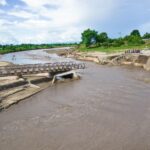The economic impact of tourism plays a crucial role in Tanzania national, regional and local planning and economic development. For businesses involved in tourism activities, it is essential to consider economic impacts in their marketing and management decisions. It is important for communities to understand the relative importance of tourism to a region, including its contribution to economic activity. The economic benefits and costs of tourism have a far-reaching impact on virtually everyone in the region.
Tanzania Tourism has the potential to contribute significantly to a region’s economic growth. It creates employment opportunities, stimulates infrastructure development and generates income for local businesses. It can also lead to the preservation and promotion of cultural heritage and natural resources, further enhancing the overall attractiveness of the region.
On the other hand, there are also costs associated with tourism, such as environmental degradation, increased demand for public services and potential cultural impacts. It is important for communities to carefully weigh these costs against the economic benefits to ensure sustainable and responsible tourism development.
To effectively harness the economic benefits of Tanzania tourism, it is essential that communities engage in comprehensive planning and strategic decision-making. This involves identifying and capitalising on the unique attractions and resources that attract tourists to the region, while mitigating any negative impacts.
In addition, understanding the economic impact of tourism is essential for Tanzania businesses operating in the tourism sector. By recognising the economic importance of tourism, businesses can tailor their marketing strategies and operational decisions to maximise their potential for success.
The economic impact of tourism is diverse and has far-reaching implications for the development of Tanzania regions and communities. By carefully considering the economic benefits and costs of tourism, communities can make informed decisions that promote sustainable economic growth and development. It is imperative that businesses and policy makers recognise the importance of tourism as a driver of economic activity and work together to maximise its positive impacts while mitigating any potential negative effects.
The Tanzania tourism industry plays an important role in generating economic benefits for both Tanzania and countries of origin. This is particularly true in developing countries, where the potential for economic improvement is a key motivation for promoting a region as a tourism destination. However, it’s important to recognise that tourism activity also has economic costs, including direct costs to tourism businesses and government expenditure on infrastructure to better serve tourists.
In addition to these direct costs, there are also hidden costs of tourism that can have unfavourable economic effects on the host community. These include high inflation and land speculation, import leakage, low returns on investment due to seasonal fluctuations in demand, and over-dependence on tourism. Regional economists formally distinguish between direct, indirect and induced economic effects, with indirect and induced effects sometimes referred to collectively as secondary effects. The total economic impact of tourism is the sum of the direct, indirect and induced effects within a region.
It’s important to consider the full range of economic effects when assessing the impact of tourism. While the industry can bring significant economic benefits, it’s also important to address the potential negative impacts and work towards sustainable and balanced economic development. By understanding and managing both the visible and hidden economic costs and benefits of tourism, Tanzanian communities and countries of origin can maximise the positive impacts of tourism while mitigating potential drawbacks.
The economic impact of tourism is diverse and complex, encompassing both direct and indirect effects. By carefully considering the economic costs and benefits and working towards sustainable tourism practices, the industry can continue to be a powerful driver of economic growth and development for Tanzania and countries of origin of tourists.
Tanzania Media
- Kanyala Ferry Launch: TEMESA’s New Service for 15,000 Sengerema Residents (Mwanza) - 18 August 2025
- Russia-Tanzania Naval Cooperation: How the Smolny Training Ship Boosts Dar es Salaam’s Maritime Security - 18 August 2025
- Tanzania’s ICGLR Commitment: Stabilising the DRC & Great Lakes Region - 18 August 2025






























































